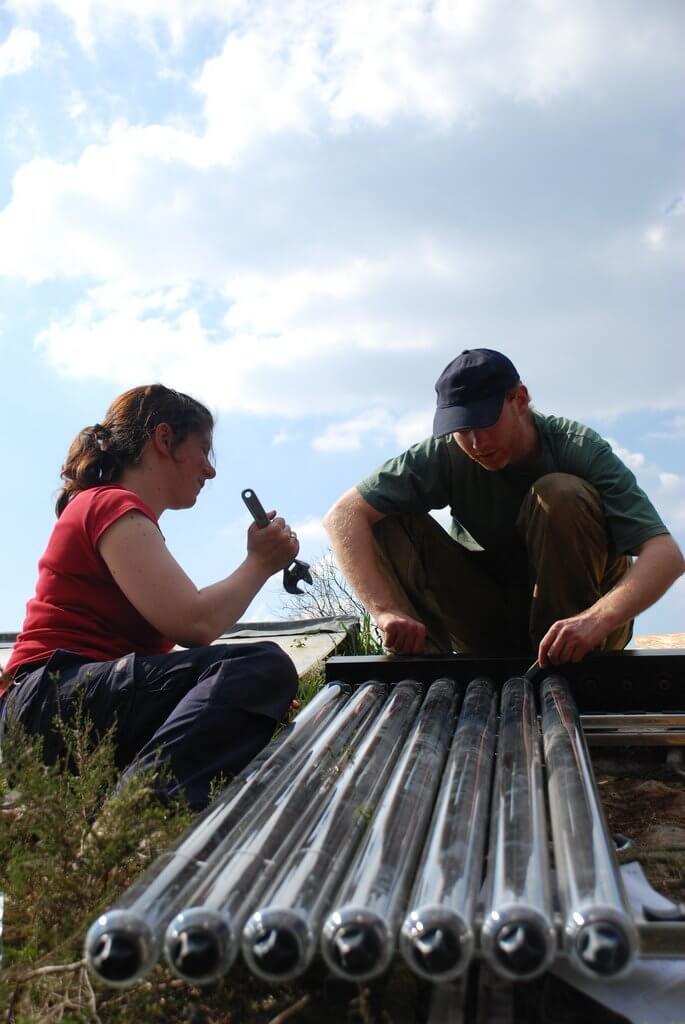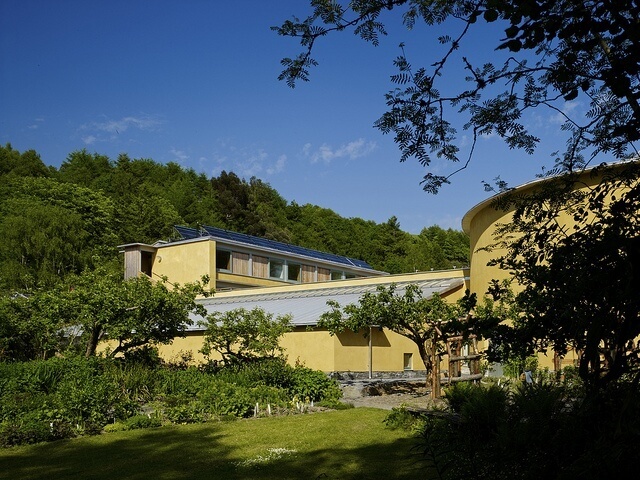Last weekend the Centre for Alternative Technology hosted the Small is Beautiful festival – two days of DIY wind power workshops, straw building, singing workshops, and a series of participatory debates.
With its stunning backdrop of sustainable architecture and functioning forest gardens, CAT is home to progressive postgraduate courses on climate adaptation and politics. Researchers at CAT have spent years crunching the numbers on how to get Britain to zero emissions, so it was the prefect setting to discuss socially just energy systems.
The Centre for Alternative Technology, Machynlleth Wales. Image: Copyright Timothy Soar / CAT. Flickr.
On Saturday, Platform’s Tanya Hawkes, Jimmy Aldridge from the Institute for Public Policy Research, Sakina Sheikh from Global Justice Now, and Cardiff PhD candidate Alister Forman discussed ‘What does a Socially Just Energy System Look Like?’ in a panel organised by Claire Bracegirdle from the Overseas Development Institute in a huge lecture theatre made of rammed earth. It was less of a debate and more a discussion of the best way forward.

Our discussion ranged from the ravaged environment of the Niger Delta to fuel poverty in the UK. From the oil investment that flows out of the City of London to the Human Right abuses in Azerbaijan. We focussed in on practical issues, like where the money will come from to invest in clean energy systems in Britain, and how to overcome the neoliberal consensus of energy markets and the domination of Big Six energy companies.
We concluded, amoung other points, that:
- A socially just energy future would be one where energy is available and affordable to everyone across the world. Where people from the global south are not exploited for their resources.
- Global energy issues are local to someone.
- Democracy and public ownership are refreshingly back on the political menu, especially with the current changes in political discourse across Britian. The NHS was scaled up from a health collective that originated in South Wales!
Can energy move beyond neoliberalism? We said a tentative ‘yes’. The idea that energy is best ‘left to the market’ is a lie – the ‘market-based’ energy system is anyway riddled with subsidies and market correction.
Where will the money come from to pay for renewable energy systems? Can local authorities lead the way? Maybe by reinvesting pension holdings? Fossil fuel companies should also help under the polluter pays principle. How can we scale up local and regional examples of renewables generation that are thriving here and abroad?
The solutions we identified included scaling up smaller, tested systems of renewable generation, reclaiming and reinvesting public money for clean energy and learning from and solidarity with frontline communities across the world. We hoped that these would be some of the ingredients of the global, socially just energy system of the (near) future.
Read more on Platform’s take on energy futures in our Manifesto for Energy Beyond Neoliberalism, and on our Divest – Reinvest page.
